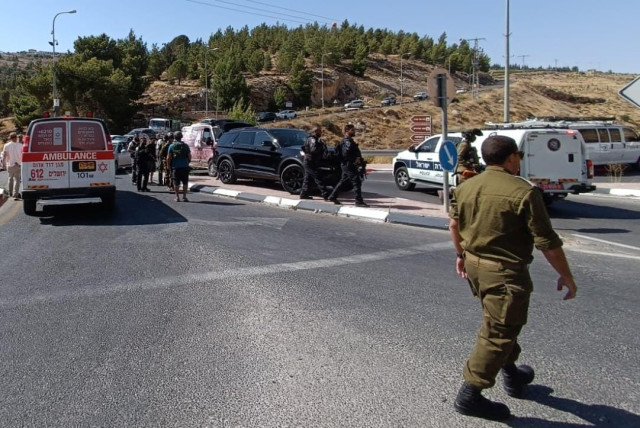Settler group wins case on demolishing 'threatening' structure built over Route 398, West Bank

The High Court found in the groups's favor and ordered the government to explain why it had failed to enforce the law, within a time limit of two weeks.
An illegally constructed building in the West Bank, which overlooked a key road, was demolished after complaints by the Regavim Movement, according to a statement by the group on Thursday.
The two-story structure was built overlooking Route 398, which connects the settlements of Tekoa, Kfar Eldad, and Nokdim to Jerusalem. It was built in order to allow travelers to bypass the Palestinian towns of Zatara and Beit Sahur.
The Regavim Movement seeks to protect Israel's resources and national security by taking legal action against Palestinian construction in the West Bank.
The group went to court over the structure, arguing that it was built in a way that posed "a clear and imminent threat to thousands of motorists."
After exhausting all possible options with registering their complaint with the Civil Administration, the group filed a lawsuit to petition the High Court to force government action.
Court rules in favor of Regevim
The court ruled in the groups's favor and ordered the government to explain why it had failed to enforce the law, within a time limit of two weeks. The group's arguments were fully accepted by the court.
On Wednesday, the attorney-general informed the group that the illegal structure was demolished.
Regavim contends that illegal construction along the route has increased in recent years and has helped to create a "stranglehold" on Jerusalem, threatening to cut off residents of settlements off from the rest of the country.
"We are encouraged when our efforts achieve results, and hope that small but significant victories like these will empower the Israeli government to change its approach and take a proactive stance toward protecting our Israel’s national interests and the security of its citizens,” Roi Drucker, Regavim’s Field Coordinator for Judea and Samaria said.
"This road cannot be allowed to turn into a replica of Huwara. Israeli motorists must not be sitting ducks on the roads of Judea and Samaria,” said Yaron Rosenthal, head of the Gush Etzion Regional Council.
Jerusalem Post Store
`; document.getElementById("linkPremium").innerHTML = cont; var divWithLink = document.getElementById("premium-link"); if (divWithLink !== null && divWithLink !== 'undefined') { divWithLink.style.border = "solid 1px #cb0f3e"; divWithLink.style.textAlign = "center"; divWithLink.style.marginBottom = "15px"; divWithLink.style.marginTop = "15px"; divWithLink.style.width = "100%"; divWithLink.style.backgroundColor = "#122952"; divWithLink.style.color = "#ffffff"; divWithLink.style.lineHeight = "1.5"; } } (function (v, i) { });

